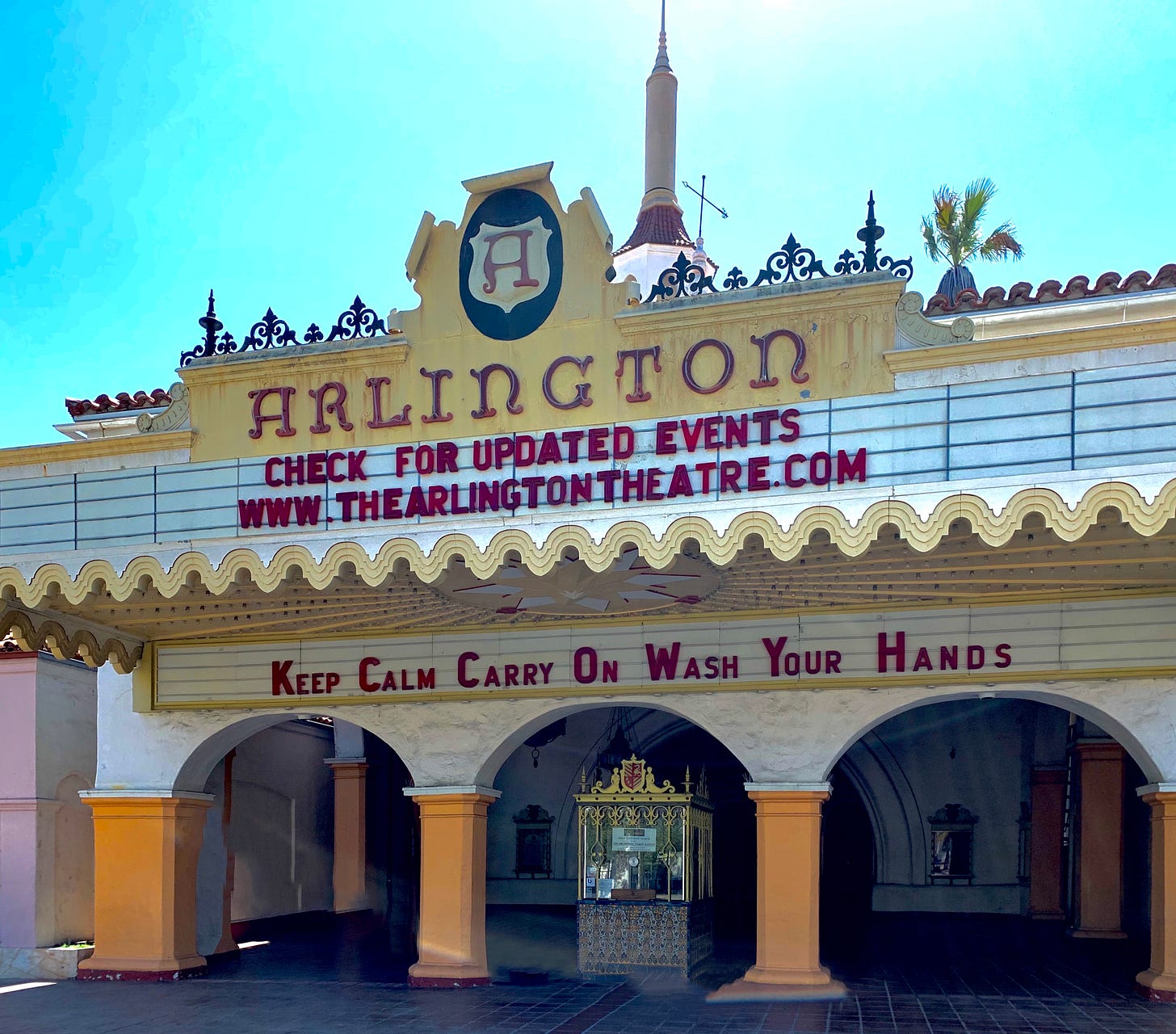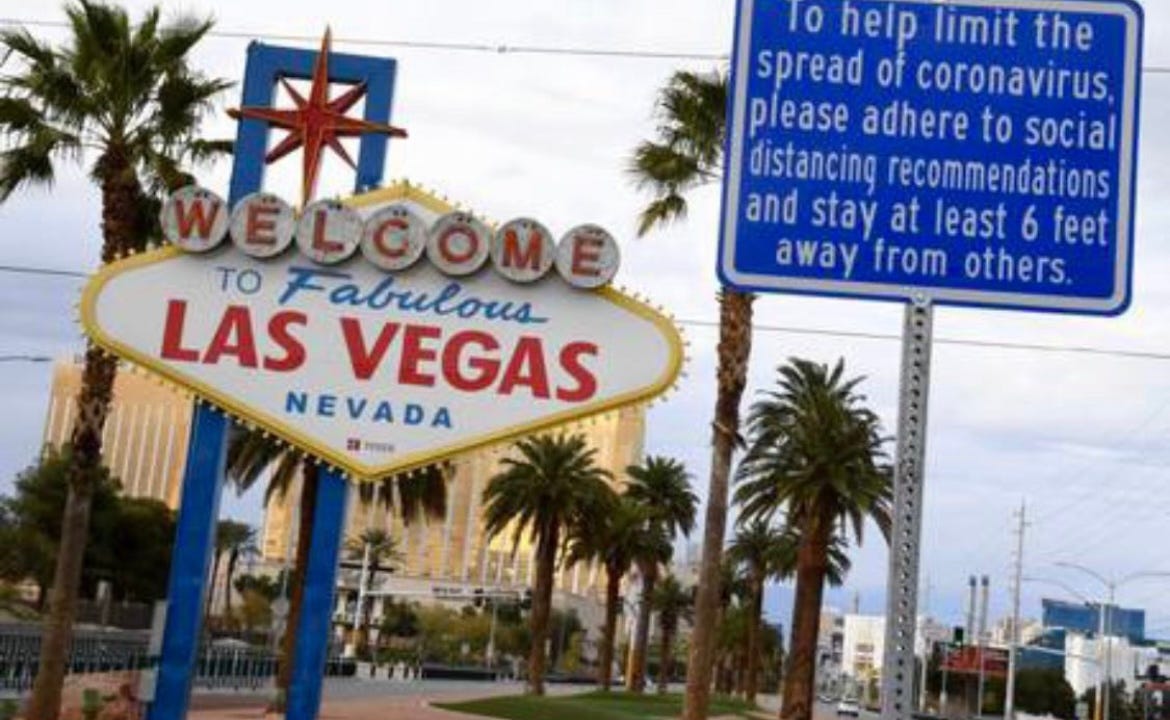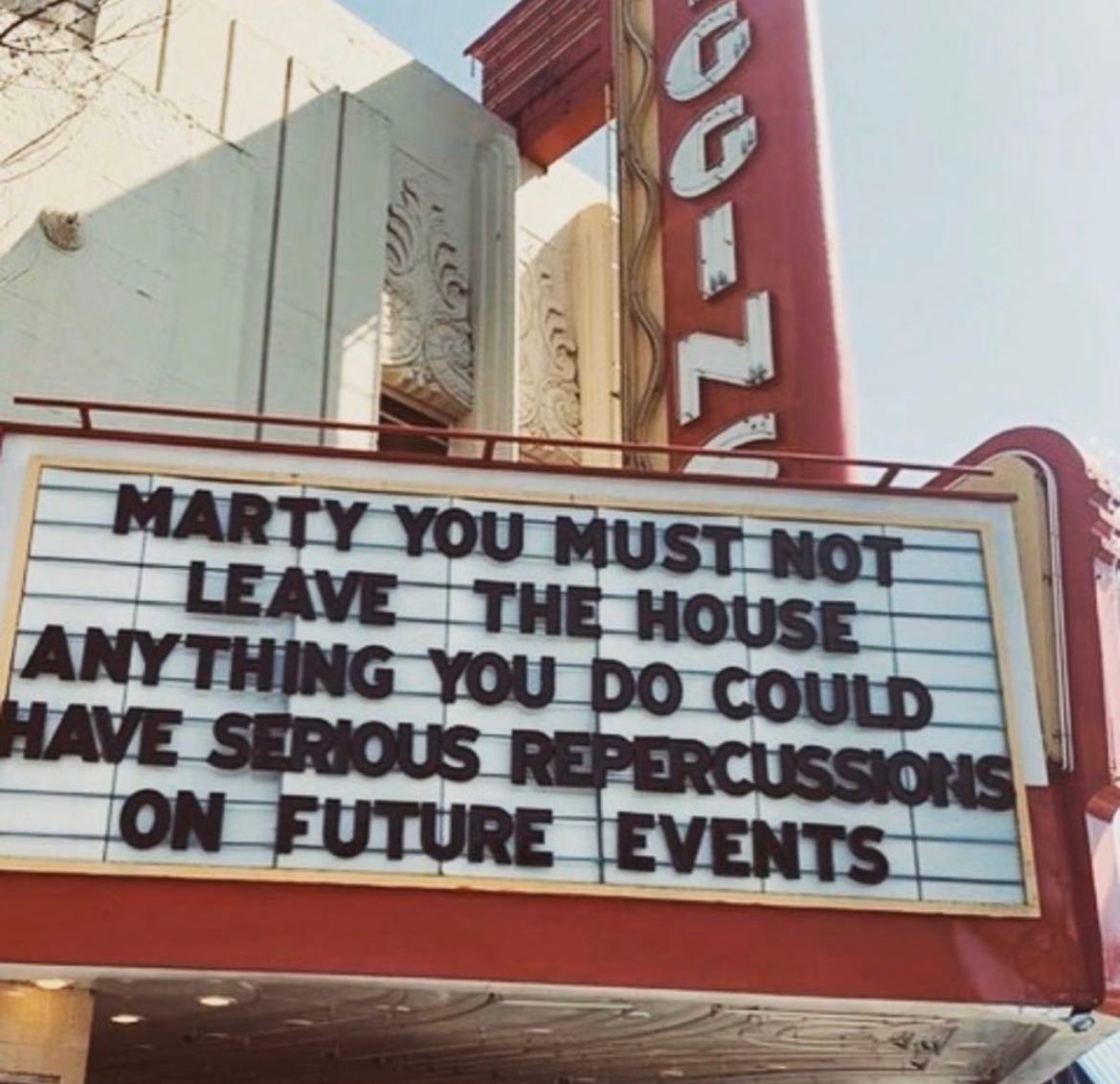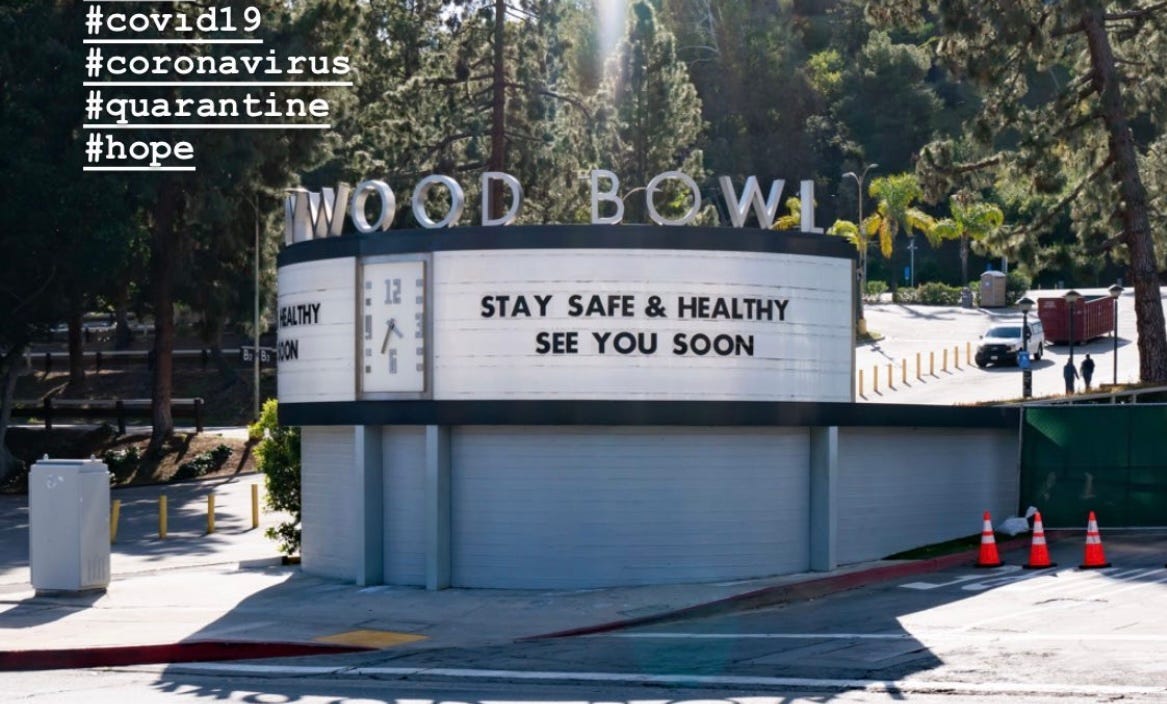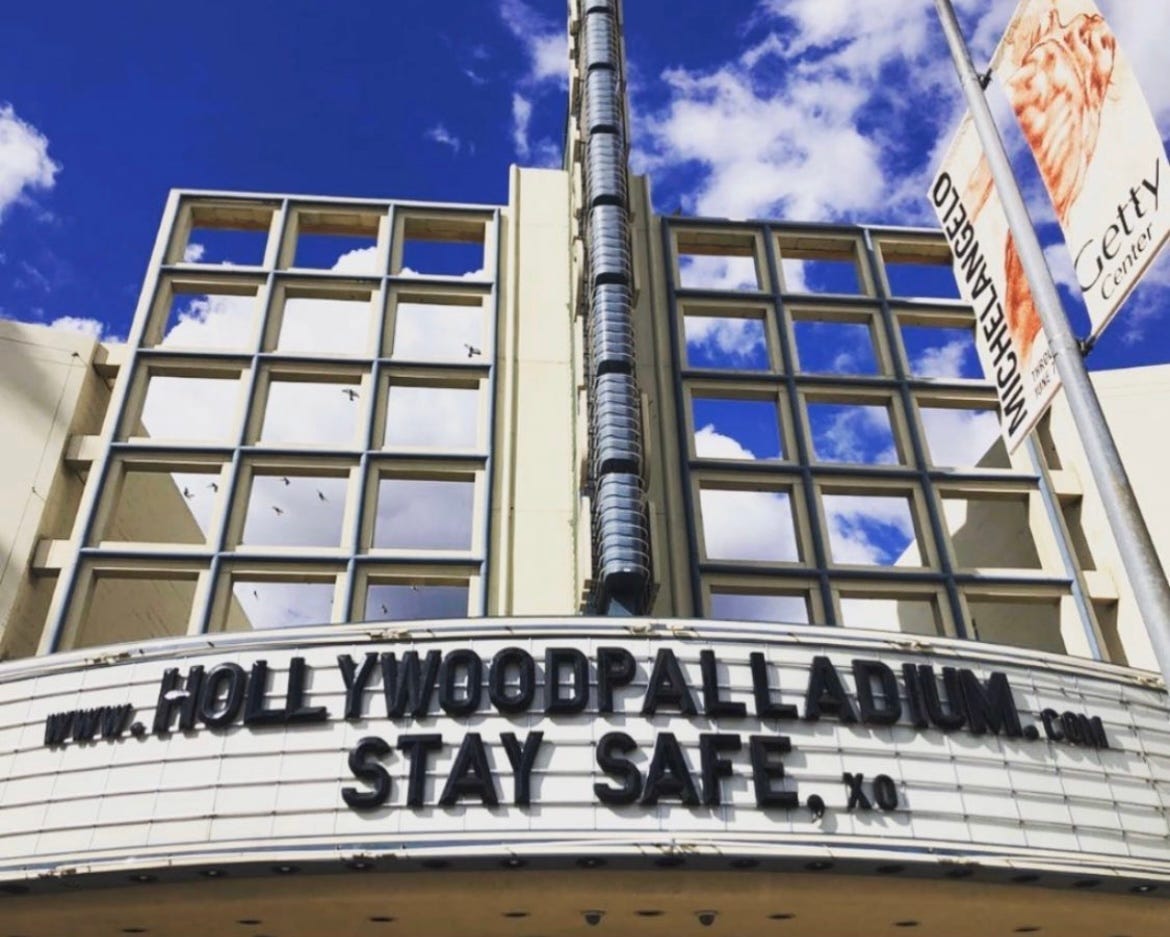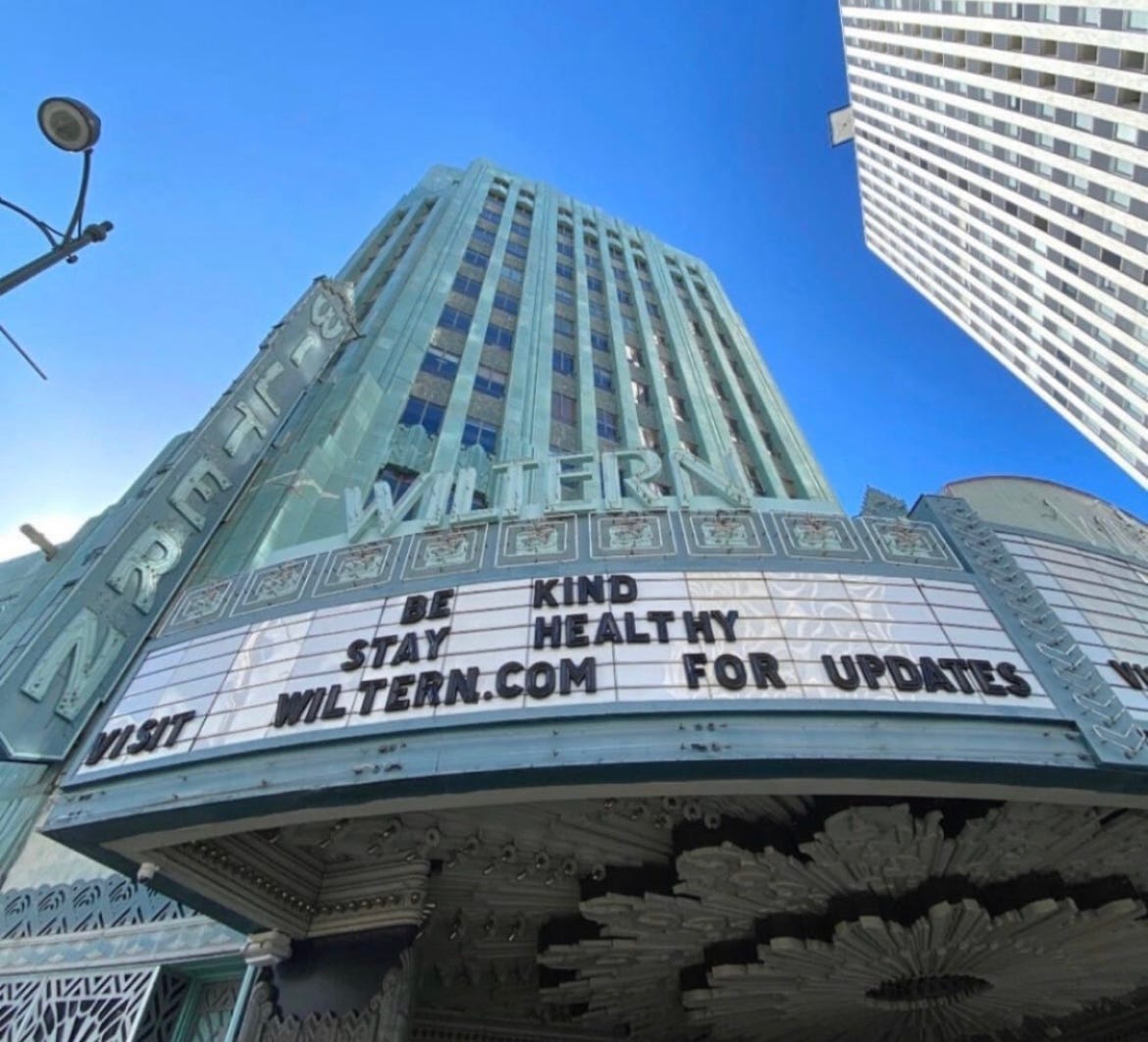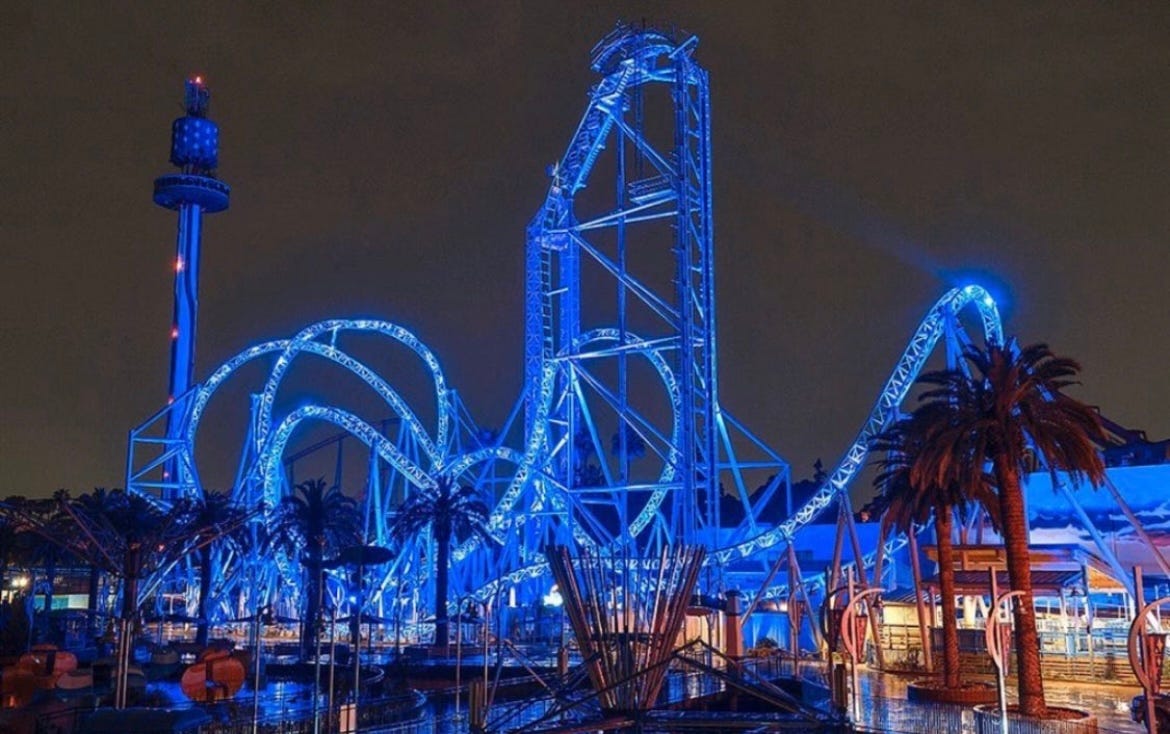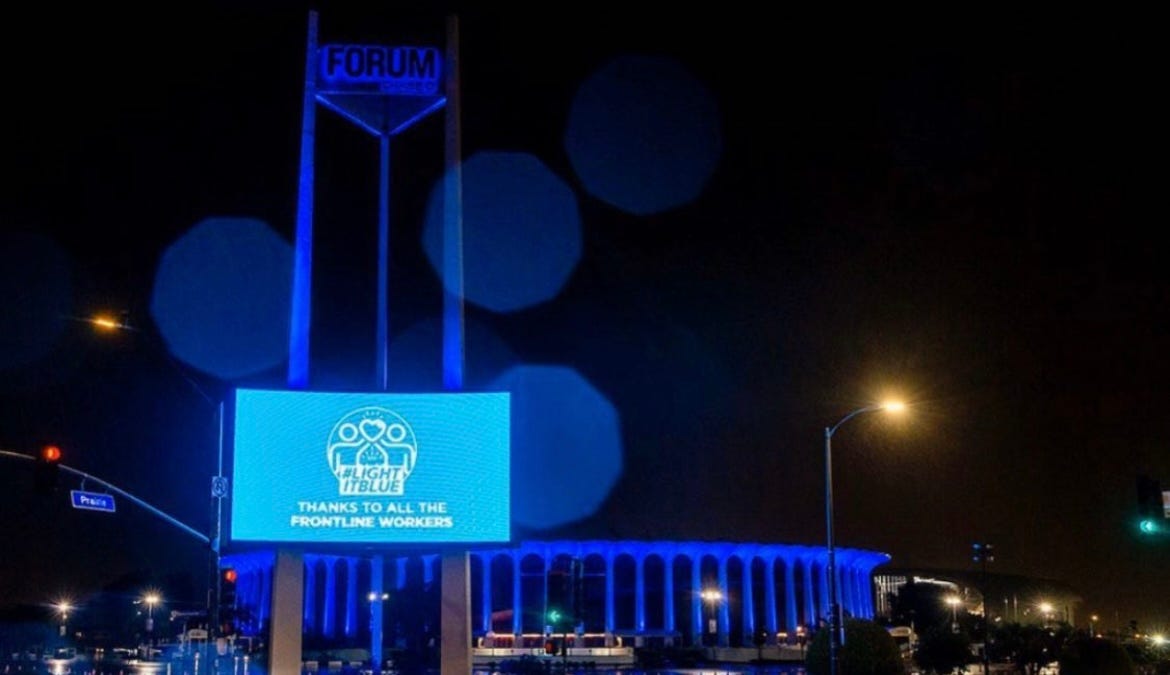The politicization of social media was ramped up like never before. Not a thread or a post anywhere on the net was blogged without an immediate commentary assault both from the left and the right. Finger pointing and passive aggressive threats ran rampant. California was a battle front for the 21st century adopted social convention of passive, screen-based communication. The internet, helpful and innovative as it had been, took on a central role as a channel for paranoid outlet groupthink that did precious little to stem the tide of rumor mongering and conspiracy theories, which blossomed like rainy day weeds.
The entertainment industry’s response to Covid-19 was unquestionably the most notable widespread change to our former world. As most of us remained stuck indoors, everyone relied on distractions through LED screens, phones, social media feeds, streaming services, and good old fashioned boob tube broadcast.
All concerts were cancelled. A new platform for working musicians and now-cancelled music festivals and events emerged. Unplugged live feeds from artists at home in quarantine proliferated, sometimes for Covid-19 awareness, sometimes for charities that helped those affected by the virus financially or medically, sometimes just for those artists to pay their own bills.
Ticketmaster and Live Nation took an unprecedented loss for postponed and cancelled shows, having to issue millions of refunds across the world, not that many were sympathetic given their near total monopoly in the music world. Nonetheless, the loss of concerts was profound, no less so for me, an avid concert attendee. Live music feeds the soul. In that time, we were as malnourished as we’ve ever been in that regard.
I was slated to see the Rolling Stones in San Diego in the spring of 2020, had great pit seats too.
Some artists elected to wait it out, postponing their tours, telling fans to hold onto to their tickets, holding onto hope that they would deliver the shows they’d already committed to, and other artists cancelled their tours outright until the future showed what was in store.
Arenas and stadiums were obviously among the highest risk circumstances in contracting infections, which was why concerts and sporting events were among the first to be cancelled and why large capacity venues would be among the last businesses to be reopened. Drive-in concerts began to proliferate, and the only question everybody had was, what do we do about bathroom needs?
Movie and concert theater marquees took to posting witty messages of encouragement, gratitude to first responders, or pandemic-specific witticisms like We’ll Be Right Back, This Is Just Intermission, Can’t Touch This, Keep Calm and Carry On, Just Keep Swimming, Stay Safe, Stay Home, The Show Will Go On, Wash Your Hands, Just a Set Break, No Close Encounters of Any Kind, Shut Happens, Now Showing Nothing Starring Nobody, and so on.
The Light It Blue campaign fired up as well, with national and regional landmarks casting their facades and towers and architectures in blue light as a tribute for first responders and essential workers. Casinos in Vegas and office buildings the world over lit up their floors of windows in arrangements of hearts and messages of solidarity to the front lines. It was a lovely thing to be sure, seeing that kind of support. It was heartening to know that once in a great while, perhaps hopefully beyond a generation-defining event, humans could indeed come together to do something as one.
It was odd first noticing the creeping, televised reactions to the extended shutdown. Covid-19 references in commercials appeared slowly at first, networks timid insofar as how to approach frightened consumers, the first few ads – usually from insurance companies or fast food franchises - offered brief sympathies, condolences, and messages of hope, all the while reminding us to buy Brand X.
On that note, perhaps it was just me, but I quickly grew tired of the repeated nomenclature that arose from the cultural reactions to the pandemic. ‘We’re all in this together.’ ‘In these uncertain times.’ ‘Together but apart.’ ‘Social distancing.’ ‘Quaranstreaming.’ ‘Blursday.’ ‘Zoombombing.’ ‘Doomscrolling.’ ‘Flatten the curve.’ ‘New normal.’ ‘Speaking moistly’ (thanks, Trudeau). ‘Unprecedented.’ ‘Toilet paper shortage. ‘Essential workers.’ ‘Self isolating.’ ‘Covidiots.’ ‘The ‘Rona.’ It’s human nature to coin nicknames and adopt shortened acronyms and cutesy phrases to try to make sense of a thing, or lighten its emotional load, but still, as my English 101 teacher might remind, overuse is overuse.
As if I have a box to stand upon in that regard.
In any case, Madison Avenue ramped up those platitudes, splashing our airwaves and Amazon banners and paid Instagram sponsorships with no mercy. Brand name masks and custom face coverings proliferated – even the bastions of classic rock offered them, from the Stones to Guns n’ Roses to Van Halen. Corporate bottom lines were addressed even under threat of global lockdown, and as it happened, the codependent state of global economics was revealed in its bloody glory.
Many commercials were created from remote at-home recordings through webcams as they ought to during quarantine, but just as many were professionally filmed and apparently edited with crews and actors, leaving some to wonder how marketing channels qualified as essential services as they involved the assembly of in-person production teams.
Mainstream television offerings changed accordingly. Many series couldn’t broadcast their finales due to production shutdowns. Many postponed their seasons. Several offerings originally scheduled for summer were bumped to early release, game shows and reality TV shows taped before lockdown.
At first, the late night shows didn’t quite know how to proceed without live audiences, but after a while Jimmy Kimmel, Stephen Colbert, Jimmy Fallon, James Corden, and Seth Meyers found a new groove, from home, in quarantine over webcams. While it was a bit dry to listen to their monologues sans audience laughter (the pronounced silence of invalidated humor was as unsettling for me as it seemed to be for them), they made it work. Americana had ended their days with the likes of Benny, Carson, and Letterman for some fifty years prior, and we needed that backbone more than ever.
All the streaming services garnered big increases in subscriptions and viewership, everybody was indoors and going nuts for distraction. Netflix, Hulu, Amazon Prime, Disney Plus, CBC All Access, YouTube Premium, ESPN Plus, Peacock, HBO Max, Quibi, Twitch, Facebook Live. All those servers were running at full capacity. It was a helluva opportune time to be an internet-based entertainment company.
Netflix had a roaring white trash hit with Tiger King – yes, I watched it and what a train wreck it was. It was hard to believe exotic animal ownership was still legal in the United States. It was harder to believe Oklahomans lionized – pardon the pun – a sociopathic gay polygamist, but there you had it.
One of the more poignant reminders of the changed world was the decision of Lorne Michaels to present a handful of remote Saturday Night Live episodes to finish out an already stretched 2020 season, broadcasted piecemeal style by the cast from their homes, networked and zoomed, skits vetted via conference calls, mostly riffs on quarantine lifestyles. The change to the opening credits, showing the cast at home in tongue-in-cheek shots of lockdown life in lieu of the usual hanging out on the streets of New York montage, was a sobering reminder of our sudden shift in reality.
A handful of seminal TV and internet moments came forth, including Jimmy Fallon’s little kids hamming it up on his remote Tonight Show offerings, Samuel Jackson’s riff on his prior “Go the fuck to sleep” bedtime story with a new version, “Stay the fuck at home.” A delightful Parks and Recreation reunion episode. John Krasinki’s internet based Some Good News. Josh Gad’s web series Reunited Apart assembled, via Zoom sessions, the casts of beloved movie franchises like Back to the Future, Ferris Bueller’s Day Off, The Goonies, Lord of the Rings, and Ghostbusters. Hollywood continued to find ways to deliver goods.
Even porn changed to suit the times. Pornhub and its equivalent online websites showcased amateur scenes with masked actors and actresses. ‘Scripts’ were filmed with quarantined ‘stuck at home with mother-in-law’ kinds of themes. Professional pornography companies required performers to get Covid tests, issued moratoriums on gangbangs or multiple partner scenes, and filmed more scenes with positions that didn’t require face to face contact. CoronaPorn. It wasn’t surprising.
There was assuredly a lot more jerking off going on in 2020 than usual, in literal and meta sort of ways, but it was odd to think folks needed new porn so badly that the industry continued on in any fashion. Odder still was pandemic fetishes becoming an actual thing. Funny how humans and their monkey-brained drives will strive to objectify nearly any context whatsoever, ain’t it. And it’s not like throughout human history, fearing our mortality ever drove any of us to the boudoir, right?
Right.
*Compiled from May 20, 2020




